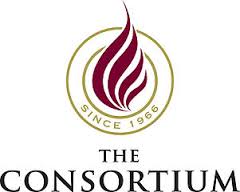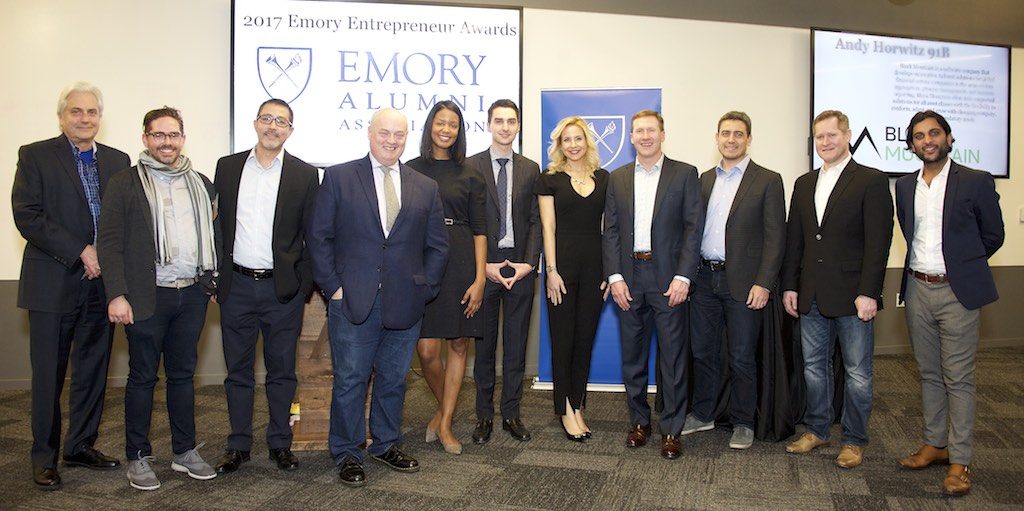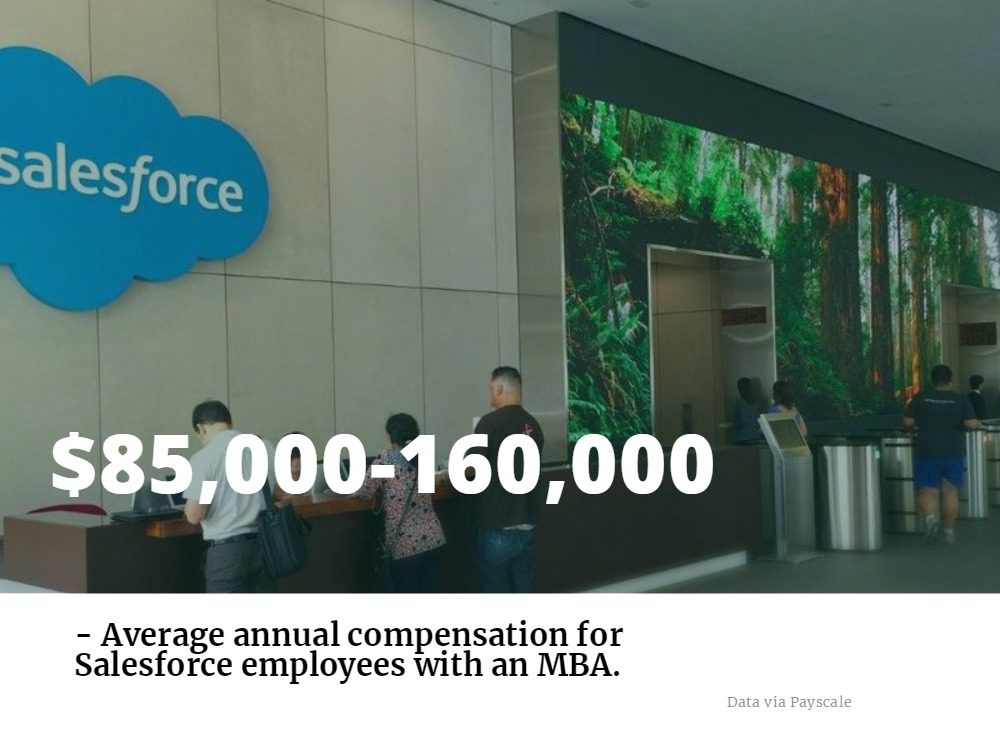March Madness Begins: Consortium MBA Draft Takes Place Today

Clear Admit recently highlighted this year’s Consortium for Graduate Study in Management MBA Draft, which is offering huge scholarship payouts for a lucky few. Check it out below.
No, it has nothing to do with basketball. A draft of another sort will take place today, but for some MBA applicants it could be as big as getting by the Golden State Warriors. We’re talking about the annual draft for the Consortium for Graduate Study in Management. Each year, the group’s member business schools offer tens of millions of dollars in fellowships to hundreds of MBA applicants, most under-represented minorities.
Held annually in mid-March, the draft is a complex matching up of leading business schools and applicants based on the order of preference expressed by each. Consortium member schools include the University of Michigan’s Ross School, UVA’s Darden School, UC Berkeley’s Haas School, Dartmouth’s Tuck School, and NYU Stern, to name just a few. When applicants apply as part of the Consortium Fellowship process, they benefit from being able to apply to six of the 19 members schools using a single application (with volume discounts for multiple schools). But then comes the tough—and critical—part.
The Importance of Ranking Your Consortium Schools Carefully
You have to rank your selected schools in order of your desire to attend, which will determine the order in which you’ll be considered for the Consortium Fellowship, a merit-based, full-tuition award. (There is the pesky little detail about needing to gain admission to a school or schools on your list.) Provided you are admitted to some or all of the schools on your list, your ranking then comes into play. If your first-ranked school declines to award you funding through the Consortium, the opportunity will be passed on to the next school on your list, and so on. According to a Consortium employee, the order in which applicants have ranked their choices is not revealed explicitly to the schools. Instead, each school is just not given an opportunity to offer you the fellowship until theirs is the top remaining school on your list.
Of course, another important part of the Consortium application is demonstrating a proven commitment to increasing the ranks of African Americans, Hispanic Americans, and Native Americans in business education and corporate leadership. The Consortium was founded in 1966 by Washington University professor Sterling Schoen around the mission of equipping more African American men with the requisite business skills to succeed in corporate America. Three schools and 21 men took part in the first year. Additional schools began to join as members, and in 1970 applicant membership was widened to women, Hispanic Americans, and Native Americans. In 2004, in compliance with a Supreme Court ruling a year earlier, membership was opened to all U.S. citizens and permanent residents who demonstrate a track record of supporting the Consortium vision.
Today’s Consortium MBA Draft Day
Fast forward to today, draft day. Representatives from the member schools are gathering with Consortium staff to begin the complicated matchmaking process, which at least in recent years has taken place in a St. Louis hotel room near the Consortium’s Chesterfield, MO, headquarters. Unless things have changed dramatically with recent additions to the number of member schools—the group has grown from 17 in 2011 to 19 this past July—the process includes six rounds and takes about four hours to complete.
Schools come in with their draft picks in hand, and the school designated as first choice by the most applicants gets to choose as many of those students as it wants to offer the fellowship. And so it continues, passing on to each successive school to select from its first-round applicants. If a school passes on an applicant at any time in the process, another school can then select that applicant in a later round.
From the applicant’s point of view, here’s what it looks like: Let’s say that Yale SOM is your first-ranked school and you are admitted into its MBA program. In today’s draft, Yale SOM will have first dibs on offering you the Consortium Fellowship. If Yale SOM does offer you the fellowship, everyone’s happy and you can choose to attend with the benefit of the fellowship. You may still be admitted to other programs on your list, but these programs cannot offer you the Consortium Fellowship.

But say you were admitted to Yale SOM but it doesn’t offer you the fellowship—or you don’t get into Yale—then the opportunity to offer you the fellowship is made available to your second-ranked school, and on down the line.
While only one school can offer you the Consortium Fellowship, that does not preclude the other schools on your list from offering you other school-specific scholarship funding. Once awarded by one school, the Consortium Fellowship is not transferable to another.
Regardless of whether you ultimately accept the fellowship and attend the school that offers it, you retain your Consortium membership status, granted as part of the application process. As long as you attend a school within the Consortium, you’ll get take advantage of a wide range of membership benefits, including valuable recruitment and networking events, webinars, and chats.
Why Would Anyone Turn Down a Consortium Fellowship?
Consortium member schools will typically select more students than they have fellowships for to account for the fact that some fellowship recipients will ultimately turn down their offers. What would make a fellowship applicant turn down a free ride to a top-ranked business school, you ask? Sometimes it’s admission to an even higher-ranked business school not part of the Consortium (Harvard, Stanford, Wharton, Columbia, Kellogg, MIT Sloan, and Chicago Booth don’t play the Consortium game). This becomes an easier decision if these other schools offer their own attractive financial aid enticements, which they often do. So in the coming Decision Week(s), keep in mind that schools that have picked you now get to anxiously await word of whether you pick them. It’s nice when the tables get turned, right?
The official Consortium Fellowship notification deadline is March 23rd, but we’d guess many schools will be eager to share the news of the fellowship award in tandem with the news of acceptance. It should be fun to watch on MBA LiveWire! Those of us here at Clear Admit are wishing luck to the applicants and schools involved in today’s Consortium MBA Draft and hope some terrific matches are made, resulting in hundreds of successful MBA careers and further expansion of the Consortium mission’s reach.
To those on MBA Livewire who have speculated about why some Consortium applicants learned of decisions from certain schools before stated decision deadlines, that’s also related to today’s draft. Consortium member schools will have needed to make admissions decisions for their potential drafts picks by today, regardless of the school’s own decision deadline. Some schools may choose to communicate those decisions to applicants early since they already will have been reached.
Learn more about the Consortium application process here. Applications for the Class of 2021 open in August 2018 are due in two rounds, the first in October 2018, and the second in January 2019.
How To Begin Your MBA Search, Pt. 3: Recognizing the Best Resources

You can find the first and second installments of our ongoing “How To Begin Your MBA Search” here.
So, you’ve narrowed down the list of business schools to which you’re applying, keeping in mind location, student body make-up, potential networking opportunities, the return on investment, and your professional goals. But while there are an additional host of ineffable qualities that guide a prospective MBA to one program or another, you must also keep in mind the resources of the programs that make up your short list. The importance of these resources will certainly depend upon your own subjective needs, but most potential MBAs will find it necessary to consider the following factors before making decisions on program choices.
Money, Money, Money
Suffice to say, business school is not cheap. Tuition at some programs can soar north of $60,000 USD per year, and unless you are currently working and your employer is chipping in, you will probably worry about how you will pay for school (particularly if you’re out of the workforce). Thus, sussing out which schools provide merit, and finding need-based scholarships is a good method of finding which schools might make the top of your list. And while a significant return on investment is almost guaranteed with an MBA, it goes without saying that graduating with less debt is preferable to graduating saddled with loads of it. Luckily, according to U.S. News & World Report, many more schools are offering such financial assistance, so if you do your research and get busy applying for fellowships and awards, you might be able to lighten the dreaded b-school burden!
I Went Looking for a Job and Then I Found a Job
Hillary Schubach of Shine MBA Admissions Consulting says that potential b-school applicants should ask, “Are there campus resources, student organizations, and activities that align with your interests?” As discussed in the second part of our series on starting the MBA search, while building a network is important, a b-school’s career services resources are also well worth researching. Where are alumni placed? Does the career services office seem robust and well-staffed, and are the advisors in-house or outsourced? These should be pertinent questions to you and any future MBA.
Know Who You’ll Be Learning From
Finally, before settling on any program, identify the professors whom you’ll most likely be learning from, and maybe try to find out more about their teaching style. Stacy Blackman of Stacy Blackman Consulting suggests asking, “what teaching methods appeal to you? Are there particular teachers, courses, fields of study or extracurriculars that appeal to you at certain schools?”
While some of these questions might have been answered when you asked yourself questions regarding where you want to end up after graduation, it is worth reiterating that if you’re unable to learn in certain environments or within certain teaching styles, you won’t be able to achieve your goals as smoothly.
Schubach gives the following advice :
“Core classes and electives that fit your career goals are extremely important. Do your needs align with the academic strengths of the school? Are you looking for a general management program, or one where you can select a concentration in your target field?”
In other words, it isn’t just the professors, but the structure of the program itself that is worth looking at closely— are the core classes suitable to your end goals? Do you need more or less structure in an academic setting?
While it seems like there are an infinite number of factors to weigh when finding the right MBA program, remember that on graduation day, you will want to look back on your b-school experience as one that was well worth it, which makes the questions all the more necessary.
Clark Atlanta Announces New Dean, and More – Atlanta News

It’s time for a newsflash! Let’s take a look some of the biggest business school and MBA news coming out of Atlanta metro this week.
Silvanus J. Udoka Named Dean of Clark Atlanta University’s School of Business — Clark Atlanta News
According to a press release issued by the school, Clark Atlanta University President Ronald A. Johnson announced the selection of Silvanus J. Udoka, Ph.D., as dean of the university’s School of Business Administration. The current professor and chair of the Department of Management will enter his new role on June 1, 2018.
“I am honored to have been selected to serve as dean of Clark Atlanta University’s School of Business Administration,” Udoka said. “The history of the institution and the storied reputation of the School of Business Administration is palpable and the opportunities to create a transformative, innovative learning environment — attributes that first compelled me to pursue this assignment — align with my own mission to produce business and industry leaders who will not only compete successfully within the contemporary business environment, but apply critical thought, analysis and creativity to develop new market paradigms across vast sectors of the global economy. We are going to do great and exciting new things at Clark Atlanta.”
You can read more about Udoka’s promotion here.
25 Alumni Recognized During Emory Entrepreneur Awards — Emory Business News
Last month, the Emory Entrepreneur Network and Emory Alumni Association recognized 25 entrepreneurs Emory University alumni at the second annual Emory Entrepreneur Awards. According to the school, the awards celebrate alumni entrepreneurs who have innovated in their start and industry.

Several of the recent Emory entrepreneur honorees pose during last month’s event / Photo via emorybusiness.com.
“As you’ll see tonight, we’ve got a really good diversity of different folks from different industries and different business that they’ve created,” Steve Greenfield, co-president of the Emory Entrepreneur Network said. “Thankfully, with the support of folks like the Emory Alumni Association and Goizueta, we’ve finally gotten some momentum behind this.”
You can see the list of honorees here.
New Mentoring Program Pairs MBA, Master’s Students With Professionals — Georgia State University Newshub
The J. Mack Robinson College of Business recently launched a graduate mentoring program that helps MBAs build relationships with seasoned industry veterans. The new six-month program matches mentors using an algorithm that examines factors such as industry, years of experience, career goals, and expected outcomes.
“We are employing the latest technologies to ensure our new graduate mentoring program is another way in which we deliver on our vision that ‘no one gets closer to business than Robinson,’” dean Richard Phillips said.
Learn more about the mentoring program here.
These are the Top 5 Contenders for Amazon’s HQ2, According to Bank of America – Business Insider
In non-school news, a handful of Bank of America industry insiders believe that Atlanta can very well be the final destination for HQ2, Amazon‘s much publicized soon-to-be second headquarters.
“Bank of America considered two factors in choosing the cities: how closely each city mirrors Seattle (the site of Amazon’s current headquarters), and how attractive the city’s financial, employment, education, business, housing, transportation, and innovation sectors are.”

Amazon’s Seattle headquarters / Photo via Elaine Thompson/Associated Press.
The company has not yet released details of its pending final selection. You can read more about the industry expert’s predictions here.
What Chicago MBAs Can You Earn the Fastest?

Here’s a lesson everyone learns well before ever stepping foot into business school: time is money.
Some students want to complete their MBA coursework as quickly and efficiently as possible. That’s where accelerated MBA programs come into play: in only 12 months, those who earn an accelerated MBA reenter the job market ready to start their next career.
Accelerated programs— also known as One-Year MBA programs—are designed for students who have clear ideas for what they want to do after graduation, as well as those who already have a strong base in business.
While one-year MBA programs are popular in Europe, they are less common in the U.S. However, several top business schools in the Chicago metro feature accelerated MBA programs.
Let’s take a look:
University of Illinois at Chicago Accelerated MBA Program – Under 12 Months
The Liautaud Graduate School of Business Accelerated MBA launched in fall 2015 and was designed for recent graduates or students with limited work experience to develop knowledge of business principles and skills in three semesters of full-time study.
Students begin the program by taking core courses—financial accounting, corporate finance, marketing, microeconomics, operations management, and organizational behavior—before moving on to advanced electives. Core coursework is completed in a cohort during the fall and spring semesters. The final semester may be completed in the summer semester or in the subsequent fall semester. This degree can be completed in under one year by students who carry a heavy course load each semester.
Kellogg Accelerated MBA – 12 Months
The Northwestern Kellogg School of Management was the first top-tier business school to offer a One-Year MBA program, launching the program more than 50 years ago. The degree option was designed for students who have both a business-related degree and several years of work experience. Fun fact: Kellogg has increased the size of the accelerated program by nearly 20 percent over the past two years.
Kellogg’s Accelerated MBA allow students to bypass core classes. Required courses are taken in the summer, and elective courses taken in the fall, winter, and spring. Students take at least two summer courses in Leadership and Business Strategy, a Crisis Management half credit course right before the fall term, and then join second-year MBA students for the final 13 courses before earning their degree.
Notre Dame One Year MBA Program – 12 Months
Notre Dame University’s Mendoza College of Business’ One Year MBA, located just outside of Chicago on the border of Indiana, begins in May and ends the same month of the following year. The program starts with a 10-week summer session before students join classes with other MBA students in the fall and spring. Summer courses include leadership & organizational behavior, marketing management, and strategic essentials. Following the summer session classes, students declare a concentration in either business analytics, business leadership, consulting, corporate finance, innovation & entrepreneurship, investments, or marketing.

The immersive Mendoza College of Business’ One Year MBA includes international expeditions / Photo via morrisinn.nd.edu
Notre Dame’s One Year MBA also has an international immersion option. Between fall break and Christmas, one year students take a full schedule of MBA courses in partnership with Universidad Catholica in Chile. In addition to business courses in English, students will have the opportunity to learn or improve their Spanish language skills. These class feature numerous travel opportunities for students to explore the Andes region, including trips to Chile’s Atacama Desert, Machu Picchu in Peru, and multi-day trekking in Patagonia. Read more about Mendoza’s Global Opportunities here.
Northern Illinois University One Year MBA Program – 12 Months
Unlike most accelerated programs, NIU’s One-Year program accepts one cohort each winter. Classes begin in January and students finish coursework in 12 months by attending class just two evenings per week. Classes are further broken down into groups, which are expected to meet up at least once per week outside of normal classroom hours.
The program also includes a nine-day international trip, which is usually scheduled in March. These experiences generally include a combination of company visits, government briefings, and university lectures. Recent international immersions have had students visiting places like Lisbon and Barcelona.
Northern Illinois University Fast Trak MBA – 12 Months
NIU is also unique in that it offers two different MBA options that can be copleted in 12 months or less. The school’s Fast Trak MBA is a day-time, 12-month program with required international experiences in Bordeaux, France or Murcia, Spain. Students attend classes Monday through Friday during spring and fall semesters.
NIU’s Fast Trak MBA has all students enter and experience the program together and begins with a mandatory orientation session in mid-August for all students. The MBA program is broken up into five modules, with students taking between two and four courses during these five-to-eight week intensive class blocks. Students enrolled in the program also have the opportunity to earn a second Masters degree in International Management from IAE the Bordeaux University School of Management or a Master of International Management from the ENAE School of Business in Murcia, Spain.
For more information on Chicago MBA programs, click here.
How Toronto Schools Can Help You Pay for Your MBA

Earning your MBA can be an expensive prospect. In Canada, tuition at the most expensive MBA programs can cost more than $100,000 for full-time and part-time students. This can be difficult for some low-income applicants.
So, what are some Toronto schools doing to help offset the cost of tuition, living, and other expenses to pay for your MBA? Continue reading…
How Can You Score a Job at Salesforce with an MBA?

Salesforce, one of the country’s highest valued cloud computing companies, is actively looking for promising MBA graduates, offering diverse opportunities in tech, business, and sales. Since it’s founding in 1999, Salesforce has been growing wildly, becoming the first enterprise cloud company tor each $10 billion in revenue as of August 2017. And Salesforce isn’t just remarkable for its product’s success—the company was also rated as the “#1 Best Company to Work For” by Fortune.
The Salesforce culture is centered around the idea of “Ohana” (Hawaiian for “family”), and earned its place at the top of the list by offering incredible benefits to its employees—both monetary and mentally. It’s understandable why MBA’s would want a job at Salesforce Ohana, with their focus on helping strong performers find new challenges and opportunities for growth.
What Does Salesforce Look for in New Hires?
Salesforce makes recruiting a priority at every level through their Futureforce University recruitment program. Salesforce offers new hires the same incredible opportunities available to all of their employees—seven days of paid time for volunteering, networking opportunities, and access to the Executive Lunch & Learn and Speaker Series that puts interns and new hires in direct contact with Salesforce leadership.
Because of Salesforce’s focus on having their employees give back to their communities, they seek out new hires who have made a demonstrated impact within their past efforts, whether at school or professionally. In 2015, Salesforce’s senior vice president of global recruiting, Ana Recio, commented on the different ways applicants could make themselves stand out.
“What did you do to differentiate your job from others?'” she said. “What was your absolute impact, your legacy? We always look for people who truly were kind of thought leaders and change agents.”
How to Get Your Foot in the Door?
MBA graduates and current students can apply directly for open roles. Current students will most directly benefit from the company’s MBA internship: a 12-week program that students can pursue during the summer in between years one and two of their program. Each summer, MBA interns are hired in the fields of product marketing, product management, CSG business analyst, corporate development, and data analytics. If recruiters think there might be a good fit, applicants will likely be given a 30-60 minute phone screening, followed by an interview with a hiring manager. Before offering the position, MBAs will likely have to partake in a panel interview/case study, presenting their professional and academic accomplishments.
Salesforce also recruits recent graduates (those who graduated in the last 12 months) in the fields of tech, sales, and business. The precise roles and interview process for each varies depending on the field.
How Well Does a Job at Salesforce Pay?
The majority of hires at Salesforce, both full-time and interns, are for tech-centric positions. However, the company does offer supreme compensation for those with business degree backgrounds—especially those with an MBA.
According to Payscale data, MBA graduates wit a job at Salesforce earn between $85,000 and $160,000 USD annually.

It’s no secret that one of the reasons Salesforce tops the Glassdoor list of “Best Places to Work” is the compensation. Although, as with any position, salary will vary depending on a number of factors, Glassdoor’s compensation of full-time employees shows a lower-end salary range of $60,000-80,000 annually (for account executives and sales engineers) and upwards of $141,000 for senior engineer positions.
What Do Current and Former Salesforce Interns Think?
Danielle, who interned with Salesforce as a product marketing MBA intern, commented on her work experience and Salesforce’s company culture in this video. “Not only am I working on independent projects as part of the internship, but I’m also shadowing people in my team and really seeing what a true day in the life is for a project manager within the app cloud,” Danielle said. “Other internships are very focused on their projects and feel very siloed but here at Salesforce I’m really able to be integrated with the team as a whole.”
Eamon, a software engineer who began at Salesforce as a recent graduate, also commented on his experience. “As a new grad what’s interesting is there really is no pathway you’re supposed to follow, it’s what you make of it,” he said. “It’s the people you go out of your way to meet, the experiences you make, the projects you decide to take on.”
